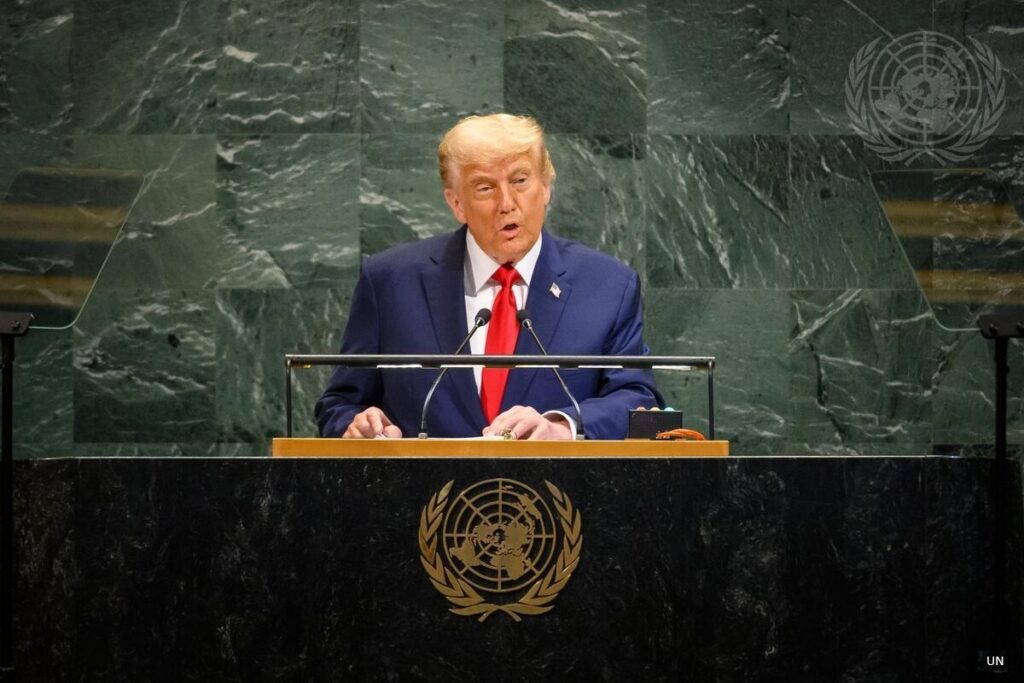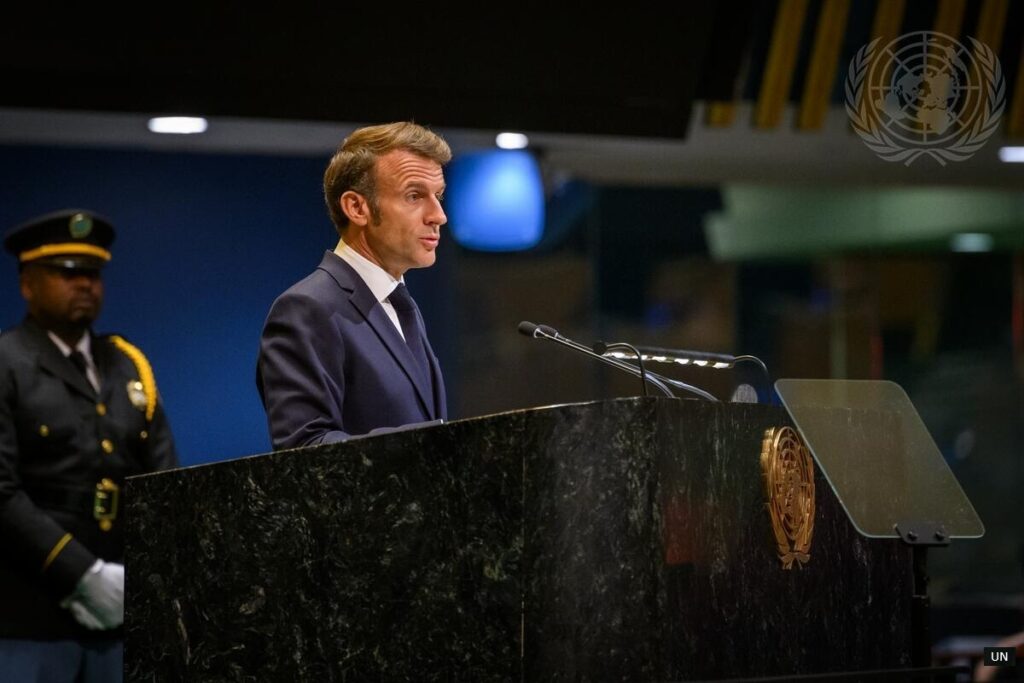By Sarosh Mustafa

UNITED NATIONS: The 2025 UN General Assembly opened with a historic diplomatic shift as several Western nations formally recognized the State of Palestine, drawing praise from many governments and fierce criticism from U.S. President Donald Trump.
France led the way, with President Emmanuel Macron declaring, “I declare that today France recognises the state of Palestine.” The United Kingdom, Canada, Australia, and Portugal soon followed, alongside smaller European states including Belgium, Luxembourg, Malta, Monaco, and Andorra. With these announcements, around 156 of the UN’s 193 member states now recognize Palestine.
Macron said the move was essential to preserve the two-state solution, calling recognition both a moral and political act. France’s position carries weight as a permanent member of the UN Security Council and could influence other EU and NATO allies.
The recognitions reflect growing frustration with the absence of peace talks and worsening humanitarian conditions in Gaza. Diplomats described the wave as a turning point in Palestinian efforts for statehood, though many noted recognition alone does not resolve border disputes, security challenges, or governance divisions.

In a stark contrast, Trump used his UNGA speech to denounce the decisions as “rewards for Hamas,” insisting statehood should not be recognized until hostages are freed and the group is disarmed. He accused Western nations of undermining Israel’s security and described the UN as “ineffective” and climate policies as a “green energy scam.”
The fiery address highlighted widening rifts between Washington and its European allies. While Europe framed recognition as necessary for peace, the U.S. and Israel maintain it risks emboldening militants and weakening prospects for negotiations.
For Palestinians, recognition brings long-sought legitimacy and diplomatic momentum. For Israel, it signals mounting diplomatic pressure despite U.S. backing. For the U.S., it marks a moment of potential isolation as even close allies diverge on Middle East policy.
Analysts warn that unless recognition is paired with practical measures such as ceasefires, humanitarian aid, and renewed dialogue, its impact may remain largely symbolic.
As the UNGA continues, the divide underscores the fragility of global diplomacy at a time of deepening conflict and shifting alliances.























